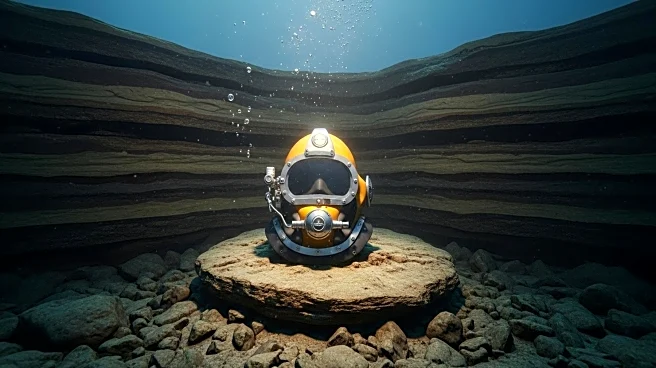What is the story about?
What's Happening?
Researchers from Norway and the UK have identified a significant geological anomaly in the North Sea seabed, where hundreds of sand bodies have inverted their stratigraphic layers. These 'sinkites' represent the largest known stratigraphic inversion, where dense sand has sunk into lighter sediments, effectively flipping the conventional layers. This discovery, detailed in a study published in Communications Earth and Environment, suggests that earthquakes or changes in underground pressure during the Late Miocene to Pliocene epochs may have caused the sand to liquify and sink, replacing deeper ooze rafts that floated to the top. The implications of this finding are profound, particularly for carbon storage projects, as it challenges existing models of underground reservoirs and fluid migration.
Why It's Important?
The discovery of sinkites in the North Sea seabed has significant implications for climate change mitigation strategies, particularly carbon capture and storage projects. As the world seeks to reduce greenhouse gas emissions, understanding the geological processes that affect carbon storage is crucial. The inversion of sediment layers could impact the safety and efficacy of storing CO2 in the ocean, a method currently being explored in the North Sea. This research could also influence the prediction of trapped oil and gas locations, potentially altering energy resource management. The findings highlight the need for further research to validate the new geological model and assess its applicability in other regions.
What's Next?
Further research is needed to explore the applicability of the sinkite model in other geological settings. Scientists and stakeholders in carbon storage projects may need to reassess their strategies in light of these findings. The study's authors suggest that understanding the formation of sinkites could change how underground reservoirs are assessed, impacting future carbon capture and storage initiatives. As the scientific community debates the implications of this discovery, additional studies and data collection will be crucial to determine the broader impact on climate change mitigation efforts.
















